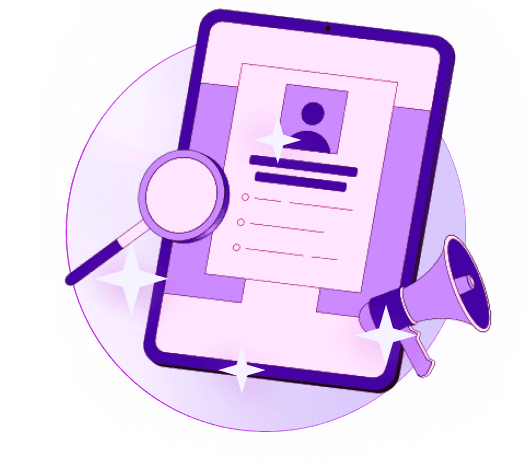Blogs
Articles

Top Lead Qualification Mistakes to Avoid in 2026
In the sales process, lead qualification is the cornerstone of success. Without proper qualification, sales teams can waste valuable time on leads that will never convert, impacting the company's bottom line.
This blog will discuss common mistakes Business Development Representatives (BDRs) make during lead qualification and provide actionable tips to avoid these pitfalls.
Additionally, we'll introduce essential tools and techniques to streamline your lead qualification process.
Common Mistakes BDRs Make in Lead Qualification and How to Avoid Them
1. Lack of Defined Lead Qualification Criteria
One frequent error is not having clear criteria for qualifying leads. BDRs may rely on subjective judgment, leading to inconsistent results. According to a study by MarketingSherpa, 61% of B2B marketers send all leads directly to sales, but only 27% of those leads are actually qualified.
2. Over-Reliance on Demographic Information
While demographic information is important, relying solely on it can be misleading. A lead might fit a specific demographic profile but lack the intent to purchase.
3. Ignoring Behavioral Data
Neglecting behavioral data is another common mistake. Understanding a lead's interactions with your brand, such as website visits or content downloads, offers crucial insights into their readiness to buy. HubSpot states that leads nurtured with personalized content produce a 20% increase in sales opportunities.
4. Poor Communication Skills
Sometimes the issue lies not in the criteria but in communication. Not asking the right questions or failing to listen can result in missed opportunities. A Gong.io study revealed that top sales reps talk about 46% less than their peers, highlighting the importance of listening.
5. Ignoring Follow-Ups
Failing to follow up is a frequent mistake. The saying "the fortune is in the follow-up" holds true in sales. InsideSales.com notes that 50% of sales happen after the 5th contact, yet many BDRs give up after just one or two attempts.
How to Avoid These Mistakes?
1. Define Clear Qualification Criteria
Establish clear and measurable criteria for what constitutes a qualified lead. Use frameworks like BANT (Budget, Authority, Need, Timeline) or CHAMP (Challenges, Authority, Money, Prioritization) for consistency.
2. Combine Demographics with Firmographics and Technographics
Instead of relying solely on demographics, integrate firmographics (industry, company size) and technographics (technology stack) for a more comprehensive view of the lead's potential.
3. Leverage Behavioral Data
Use tools to track and analyze behavioral data. Tools like Google Analytics and Hotjar show how leads interact with your site, offering valuable insights for qualification.
4. Enhance Communication Skills
Train your BDRs to listen more and ask open-ended questions. Encourage role-playing exercises and offer feedback to improve their communication skills.
5. Implement a Robust Follow-Up System
Ensure your BDRs have a follow-up system in place. Utilize CRM software to set reminders and track follow-ups. Persistence is key in lead conversion.
Conclusion
Lead qualification is a critical part of the sales process that demands attention and precision. Avoiding common mistakes such as lack of clear criteria, over-reliance on demographics, ignoring behavioral data, poor communication skills, and failing to follow up can significantly improve your sales outcomes. By implementing the right strategies and utilizing powerful tools, BDRs can optimize their lead qualification process.
For a streamlined approach to lead qualification, consider using tools like Persana.ai. Our platform helps you leverage AI-driven insights for more effective lead qualification and outreach. Start enhancing your lead qualification process today!

Create Your Free Persana Account Today
Join 5000+ GTM leaders who are using Persana for their outbound needs.
How Persana increases your sales results
One of the most effective ways to ensure sales cycle consistency is by using AI-driven automation. A solution like Persana, and its AI SDR - Nia, helps you streamline significant parts of your sales process, including prospecting, outreach personalization, and follow-up.



